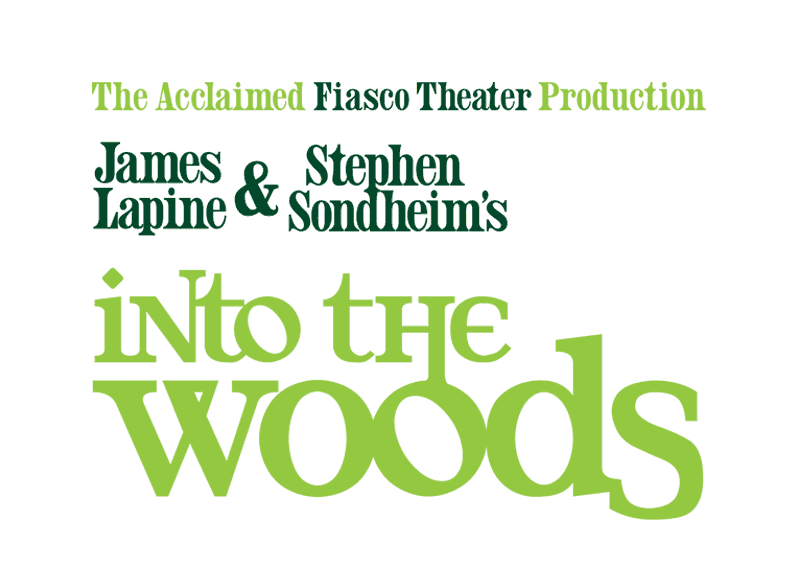Celebrating the Fiasco that Is ‘Into The Woods’
A Look at the Acclaimed Fiasco Theater Company

Ten years ago, a group of recent graduates of the Brown University/Trinity Rep MFA acting program living and working in New York decided to form a theatre company. They called themselves the Fiasco Theater because, as they explain on their website, “While we hope to avoid on-stage disasters, we do believe that it is only when artists are brave enough to risk a fiasco that the possibility exists of creating something special. We chose the name Fiasco to remind ourselves to brave the huge leaps in the hopes of reaping huge artistic rewards.”
Now Fiasco has landed at the Ahmanson Theatre with their acclaimed production of Into The Woods (onstage through May 14, 2017)—and, after much lauded runs on Broadway and in London, it’s quite the opposite of a disaster. What makes their interpretation of this beloved musical so special, and how did a small group of young theatre artists become critical darlings?
Noah Brody, a Fiasco co-founder and the co-director of this production, answered that first question in a Washington Post story:
“The strength of the company is that we are very good close readers,” says Brody, who is married to one of Fiasco’s other founders, Jessie Austrian. “We impute intentionality to the authors. We’re not bringing our Wite-Out to the script; we’re bringing out a microscope.” ...The company’s interpretation tends toward mining the poignant emotionality from moment to moment, as it also seeks to unearth new possibilities in the storytelling. One of the best ideas is, characteristically, both novel and sweet. Normally, Milky White, the cow that Jack of beanstalk fame is supposed to sell, is a mere prop; here she’s played to loving and hilariously ironic effect by a male actor.
A 2011 New York Times profile delved into Fiasco’s origins as their interpretation of Shakespeare’s Cymbeline opened Off-Broadway at the Barrow Street Theatre:
Fiasco’s success is, like Cymbeline, something of a fairy tale. Sitting in a sunlit Times Square rehearsal space where the company was readying the show for its new engagement, Ben Steinfeld, [Into The Woods co-director, Fiasco co-founder, and] a company member, said: “Our story is preposterous. It’s hard to believe.” Yet it is true.
Fiasco is deeply committed to working as an ensemble. Co-founder Jessie Austrian explained how that process works—and why they always work with a small company—in an interview with Shakespearances.com:
We wanted to make it worth actors’ while to come on board with us, so we wanted to double and triple as many parts as possible to make it a real ensemble show, so part of why we create tracks that double and triple characters is so that each actor gets a lot to work on, and nobody plays a spear carrier who waits off stage for two hours doing a crossword puzzle. We wanted it to be a real ensemble show where everybody was invested and had something to really challenge them as an actor.
Before staging Into The Woods, Fiasco was known primarily for its work on Shakespeare plays. But as Steinfeld told Theatermania.com, it wasn’t actually much of a leap from Shakespeare to Stephen Sondheim:
Just when you think you figured out what Sondheim’s point of view of the world is through one of the characters, the other character will come out with an equally strong point of view that feels equally believable…That happens with Shakespeare all the time. He’s able to embody each character’s point of view as if it were his.
The company is also known for their innovative stagings, including out-of-the-box design choices. Noah Brody talked about the show’s set design in an interview with Roundabout Theatre Company:
When we started talking with Derek McLane, our set designer, we knew we weren’t interested in having trees represent the woods. And we were interested in a space where all the physical objects that represent inheritances could coexist with a piano, since we knew one would be at the center of the production. Derek took that and came up with this idea of expanding and exploding the piano so that the entire production, in some sense, was happening inside the piano. Upstage he has these layers of string that are evocative of the woods. On the sides of the stage are piano harps that are the guts of the piano and are incredibly tactile and evocative, as well. He took our soup of ideas and worked that into a magnificent design.
Both Stephen Sondheim and James Lapine are fans of this adaptation and have championed it on its international journey, as Brody explained in an interview last year when the production traveled to London:
James came to one of our earliest previews when we first did the show, then Steve came along just before or shortly after we opened in 2013 in Princeton, New Jersey. He became a great champion of the production and of our work, and we had the good fortune to sit down with him for conversations about his work. He came in to hear sing-throughs of the show to give us notes, and he’s been very generous with his time and his thoughts. We feel privileged to have a relationship with him and to have him as a champion of our work.
